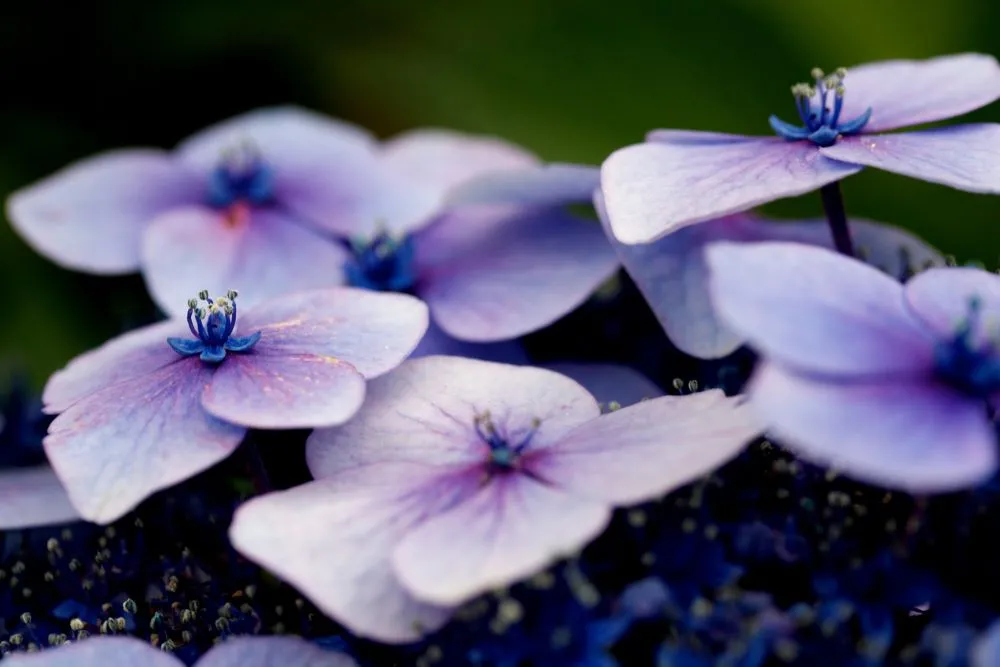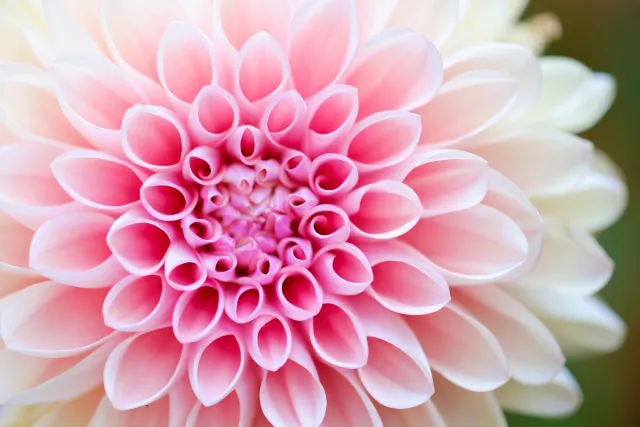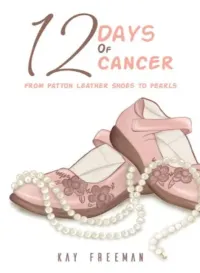A Breast Cancer Survivor Shares Words of Hope & Ways to Cope

Photo by Nikhita Singhal for Unsplash
On days when I may not be feeling my best, I walk through my garden embracing the fragrance of the flowers, closing my eyes at times, and feeling the peace around me.

It’s estimated that 1 in 8 women and about 1 in 833 men in the United States will be diagnosed with breast cancer in their lifetime.
Like many of us, you may have a friend or loved one who has been affected by this disease. You also may be a breast cancer patient or survivor, like Kay, who was diagnosed with an aggressive, advanced stage breast cancer in 2020.
In the following Q&A, Kay shares her story to let other breast cancer patients and survivors know they are not alone and that ― while cancer is not an easy road ― hope, peace, new dreams, and new paths lie ahead. “Just because I am not the girl I used to be does not mean my new self has to be a frightened victim looking over my shoulders and too afraid to take chances,” she writes. Read on to learn more about Kay’s story.
Could you tell us a bit about yourself and your cancer experience?
I am a mom, a wife, and a former overachiever who thought I could fix all things that were presented to me. Today, I am a survivor who knows when her cup runs over. I am not afraid to say and accept that I can’t fix your problem(s). The answer is a soft “no.” Sometimes unwelcome adversity can change your life as well as save it! Looking back, I realize cancer may have saved my life. I now have to take care of myself and my well-being.
I was diagnosed with breast cancer during the height of COVID-19 in 2020. It was thought to be stage 0 to 1 and resulted in 5 weeks of radiation. After my lumpectomy, my condition was moved up to stage 3A, with the cancer quickly spreading. I was escorted to a chemo chair less than a month after my surgery. That was followed by a radical mastectomy and then 6 weeks of radiation.
"I was concerned about my tomorrow. Do I have one? Who will take care of my kids? And most of all: What happens if I do beat cancer? Will I be the same person I was ― the girl I know? Or will I be a stranger to myself?"
What were some worries and fears you experienced after diagnosis, and what coping methods did you find helpful?
When I was first diagnosed with cancer, I was numb and robotic. While commuting on the train to work, I saw my reflection and thought I could not have cancer ― I didn’t look sick. This must be a mistake. After that feeling passed, and because I did not have a quick fix for myself, I began to retrace my steps to ascertain where or when I dropped the health ball. No dropping of the health ball occurred, so the next feeling I experienced was one that I was told many have felt: “Why me?”
My coping mechanism was arduous for me. I had to reach out and ask for help because I could not fix this. I found myself searching for answers, so I called the Cancer Support Community Helpline to begin my research. What I received from that call was compassion, reassurance, a listening ear, and a safe zone where I did not have to be the smartest fixer in the world; I could be the current me, a cancer patient.
At that time, I was concerned about my tomorrow. Do I have one? Who will take care of my kids? And most of all: What happens if I do beat cancer? Will I be the same person I was ― the girl I know? Or will I be a stranger to myself?
Calling CSC's Helpline began as a routine reach for resources, but the result was empowerment to fight my battle. The call made me know that it was okay to take care of Kay, and it was also okay to be afraid. From that call, a plan was formulated ― a plan to take care of Me and be forgiving of myself because I did not cause this illness or any physical impairment that may result from treatments.
Additional peace was found in meditation and prayer and accepting the caring ears of strangers. Allowing yourself to be open and receptive is one means of coping with this disease.
"You look in the mirror and this stranger is staring back at you. . . . I tried so hard to find the girl I used to be when I looked in the mirror, but after a while, I realized she was gone. It took some time, but I am okay with that. I look at it as an adventure."
How did you hear about the Cancer Support Community, and what CSC support programs and/or services were helpful to you?
I found out about CSC from my profound research via Google. When I was first diagnosed, I was lost and needed answers. COVID-19 was taking control of the world as we know it and fear plagued so many. So, inquiries about cancer and next steps were not at the top of the charts for most. I had to delve into this cancer arena with my fears and apprehensions. But the welcoming ears and helping hands from CSC made me feel a bit more at ease. They made me feel as though my questions, concerns, and even fears were very important. They provided guidance, answers, and support.
What would you say to someone who is considering reaching out to CSC?
Take a deep breath and reach out. You are in a safe zone without judgment. The folks at CSC are knowledgeable, caring, and will provide guidance and answers to your questions.
In your experience, what have been a few of the toughest challenges of survivorship, and how do you manage them?
The chronic pain from 8 fewer lymph nodes in my arm. The rebuilding of a body that was traumatized with lasting muscle issues and spasms.
There is also mental pain. You look in the mirror and this stranger is staring back at you. I was always slender but now even more so. I tried so hard to find the girl I used to be when I looked in the mirror, but after a while, I realized she was gone. It took some time, but I am okay with that. I look at it as an adventure. I can rebuild myself as I see fit. My hair is slightly different, resulting from chemo. I find the positive in the new hair.
I want to celebrate every day for a very long time. As a cancer survivor, the thought looms over your head, at times, of cancer returning. That is a scary thought, especially when you encounter co-survivors who tell the melancholy story of their loss. It takes you back to your fight, and at times, your mind will wonder about your tomorrow. Find a way to bring your mind back to the present day. That is one tool you will need to maintain your mental strength.
"I had to delve into this cancer arena with my fears and apprehensions. But the welcoming ears and helping hands from CSC made me feel a bit more at ease. . . . They provided guidance, answers, and support."
You recently wrote a book about your experience to inspire and encourage others. Could you talk a bit about how the book started, and how writing helped you process your experience?
During chemo I was weak, sick, and just so tired. I was not as nimble. I composed a mental journal in my head during my [chemo] sessions. I could not handwrite my narratives because the neuropathy was horrendous. Shortly after my second surgery, I had to undergo radiation. I was up early in the morning with painful fingers, so I researched and began creating movements that made me feel less pain. One of those movements was moving my fingers as if I were typing ― hence, the beginning of my journal. I completed this typewritten work and figured I would print it and keep it for my kids.

One day I received a self-published book from a friend with a note advertising his publishing company. I called him and began to research how to publish a book. It was just out of curiosity. His first words were, “Most aspiring authors will be rejected by publishers, so they should self-publish.” Well, I like a challenge! Long story short, I found two well-known publishers who both wanted to publish my story. That is how I wrote a book.
My book is meant to inspire all individuals, whether you are battling an illness or aspiring to achieve a dream or quest.
Editor's Note: The cover design for Kay's book was inspired by things in her own life that symbolized her cancer journey: "Those pearls originally belonged to my mom," she shared. "The shoes are from my little girl. [They] are a reflection of my life and how I initially walked onto the cancer road." Learn more.
What is one of the most important takeaways you hope readers will gain from your book?
The book was written by a mom for her kids. It was meant to solidify my love for them. I thought my story was an ending, not realizing it was a beginning!
In addition to writing, what are some passions that bring you joy?
One of my passions before my illness was gardening. Like most busy folks, we plant, water, weed, and maintain sequel color balance with the flow of our flowers. However, what is not always done is to look at our garden and see the natural beauty that it possesses. I am not able to plant, weed, and at times water my garden. So, it is very scaled back.
This summer I watched my garden bloom and thought, ‘How this could be?’ The birds did their part and growth occurred. In essence, my garden bloomed and never looked better. The difference now is that I appreciate my garden. I welcome the instinct of the birds and I find hope in the growth of my flowers. On days when I may not be feeling my best, I walk through my garden embracing the fragrance of the flowers, closing my eyes at times, and feeling the peace around me.
What is one of the greatest gifts you are discovering in survivorship?
Me! An illness can be a wake-up call to indicate a change in your plans, lifestyle, or way of looking at life. Life is a gift and living is a blessing, so why not celebrate your life and live it to the fullest?
Do you have any additional thoughts you’d like to share with others who are navigating a cancer diagnosis or survivorship?
Cancer is not easy; you will need to develop a support team ― not only a medical one, but also a mental support team. Reach out to CSC's Helpline and understand those listening ears are there to help you. My younger sister lost her battle with cancer 5 weeks after she was diagnosed. I think of her often. I know this disease from both ends, and my best advice to you is to reach out to a support group or center because sometimes comfort can be achieved within a community that understands.
Take a deep breath and reach out. You are in a safe zone without judgment. The folks at CSC are knowledgeable, caring, and will provide guidance and answers to your questions.
Interested in more blogs like this? Read our blog series by Amber, a breast cancer survivor who traces her cancer journey from diagnosis to life post-treatment.